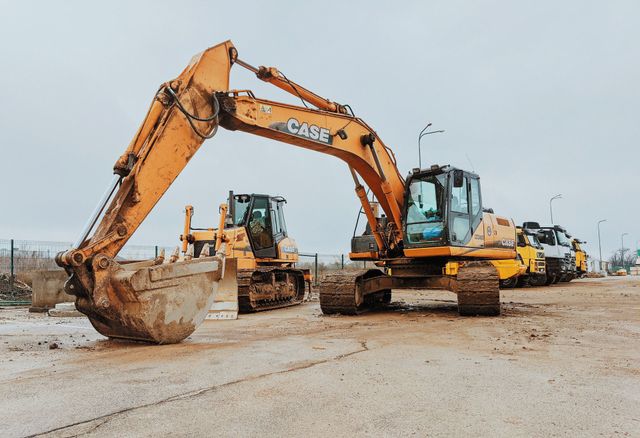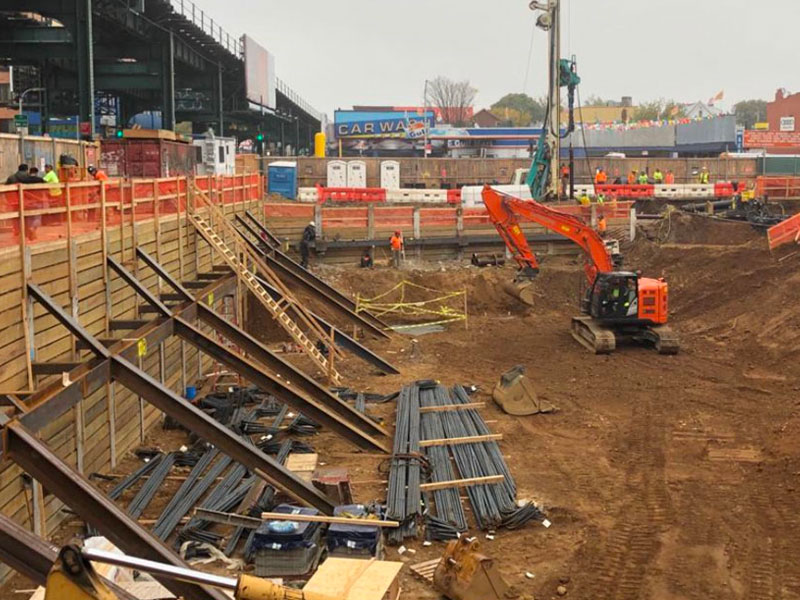Specialist Septic Ohio - Relied On Septic Tank Specialists in Ohio
Specialist Septic Ohio - Relied On Septic Tank Specialists in Ohio
Blog Article
Comprehensive Excavation Techniques: Understanding the Principles for Success
In the world of construction and civil design, the value of efficient excavation strategies can not be overstated. The careful planning, specific implementation, and thorough attention to detail required in excavation projects demand a comprehensive method that encompasses different essential elements. From first soil evaluation to the implementation of precaution and normal progress tracking, understanding these core elements is essential for accomplishing success in any type of excavation endeavor. The real mastery lies not just in understanding these principles yet in perfectly integrating them to navigate the intricacies of excavation jobs with finesse.
Recognizing Excavation Task Preparation

The first phase of any kind of excavation task is the planning stage, where vital decisions are made that can substantially impact the outcome of the job. Understanding the task timeline, scope, and spending plan restrictions is essential for creating a detailed excavation plan that makes sure the project's success.
One key aspect of excavation job preparation is the advancement of a detailed timeline that describes the series of deadlines, tasks, and milestones. This timeline works as a roadmap for the job group, permitting them to track progression and make needed changes to make certain the project remains on schedule. Furthermore, a distinct budget that represents all costs, consisting of equipment service, labor prices, and products, is essential for avoiding price overruns and hold-ups. By thoroughly thinking about all these aspects during the preparation stage, excavation tasks can be carried out successfully and successfully, leading to successful results.
Dirt Analysis and Site Analysis
Conducting extensive dirt analysis and site assessment is a vital action in the prep work phase of any excavation job. Soil evaluation involves establishing the make-up, framework, and homes of the dirt at the excavation website. This info is critical for understanding the soil's bearing capability, wetness material, and possibility for disintegration, which are vital factors in figuring out the excavation methods and equipment required for the task.
Site examination goes beyond soil analysis and includes a wider evaluation of the overall website conditions. This examination includes identifying any kind of potential hazards, such as below ground utilities, ecological issues, or unpredictable terrain, that could influence the excavation process. By completely examining the site, job supervisors can develop effective excavation approaches that prioritize safety, effectiveness, and ecological security.
Utilizing advanced technologies like ground-penetrating radar, soil tasting, and drone studies can improve the precision and effectiveness of dirt analysis and website evaluation. Investing time and resources in these preliminary actions can eventually save time and avoid pricey delays or problems throughout the excavation procedure.
Devices Selection and Application
Reliable excavation projects depend greatly on critical equipment choice and use to guarantee optimum performance and performance. Picking the ideal equipment for the task is important in making best use of efficiency and lessening downtime. Aspects such as the sort of dirt, deepness of excavation, and job scope play a substantial function in determining one of the most suitable tools for the job at hand.

Along with choosing the ideal tools, appropriate usage is crucial to job success. Operators needs to be educated to deal with the tools safely and successfully - you can look here lancaster excavation. Regular maintenance checks and timely repair services help protect against failures and guarantee regular performance throughout the project
Precaution and Regulations Compliance
In the realm of excavation tasks, prioritizing precaution and compliance with guidelines is extremely important to ensuring a lawfully sound and safe and secure operational setting. Precaution incorporate a series of practices, including conducting thorough site assessments, carrying out proper signage and obstacles, and offering appropriate safety training for all employees associated with the excavation procedure. Adherence to guidelines, such as OSHA needs in the United States, makes certain that the excavation job fulfills the essential criteria to protect workers, spectators, and the surrounding environment.

Tracking Development and Adjusting Techniques
Exactly how can official source predict supervisors efficiently track the development of excavation projects and adjust their approaches as necessary to maximize end results? Tracking progression is necessary for making sure that excavation jobs stay on track and meet deadlines.

Verdict
To conclude, grasping the principles of detailed excavation methods is important for the success of any kind of project. By comprehending job planning, assessing soil and website problems, picking suitable devices, adhering to safety and security guidelines, and checking development, job managers can make sure a smooth and efficient excavation process. Executing these methods will cause effective outcomes and website here decrease prospective dangers or problems throughout the excavation task.
The initial phase of any kind of excavation task is the planning stage, where essential decisions are made that can substantially affect the end result of the task. Comprehending the project range, timeline, and budget restraints is critical for producing a detailed excavation plan that ensures the project's success.
Just how can forecast supervisors properly track the improvement of excavation tasks and adapt their techniques accordingly to enhance end results? By closely keeping track of development and being prepared to adjust approaches, project managers can boost the total success of excavation tasks.
By understanding task planning, evaluating soil and site conditions, selecting proper devices, conforming with safety laws, and keeping an eye on progress, project supervisors can ensure a reliable and smooth excavation process.
Report this page